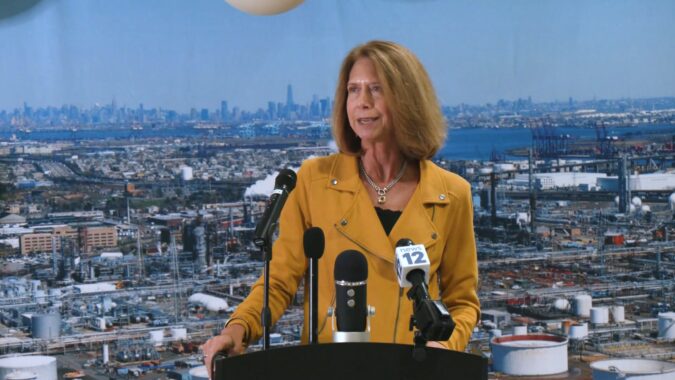On behalf of our member companies that provide 1 million jobs in New Jersey and make
NJBIA the largest statewide business association in the nation, we are writing to you in
strong opposition of Senate Bill No. 4265/ Assembly Bill No. 6235, which concerns work
break periods and conditions of warehouse employment. This legislation creates another
labor mandate on the business community and places intrusive operating requirements on
warehouses.
While targeting warehouses, this legislation would require all employers, not just
warehouse businesses, to require paid 30-minute meal breaks and 15-minute rest breaks
for all employees working a certain number of hours. Many employers already have meal
and rest break periods in place for their workforces that are included as an employment
benefit during contract negotiations. In addition, employers with collective bargaining
agreements often include break periods as part of their wage packages. By requiring rigid
amounts of time for rest and meal break periods, the state will infringe on the collective
bargaining process, tipping the scales away from the needs of employers. In addition, under
current collective bargaining agreements, some employees may decide an additional
contribution into a retirement fund or a shorter workday is more advantageous to them
than a rest break. Employees and employers should have the ability to negotiate in good
faith on these matters without additional interference by the state.
In practice, requiring specific break periods in a warehouse setting may hinder the ability of
the business to operate at full efficiency. The supply chain and logistics industry rely on
specific timing that varies for each facility. Work breaks are often specifically timed to best
accommodate safety, productivity, deliveries, and shipments. For small businesses,
requiring all breaks to be paid may put an additional financial strain on employers that have
already struggled to remain open during the pandemic.
This legislation requires the Commissioner of the Department of Labor and Workforce
Development to establish requirements for work quotas in covered warehouse facilities. By
establishing work quota guidelines, the Department of Labor and Workforce Development
will be setting intrusive standards on the operating procedures of private businesses. These
quota requirements would quantify the number of tasks an employee is allowed to complete
in a given time frame and ensure that wages are “fairly and reasonably commensurate with the
value of the service provided.” What constitutes a “fair wage” is quite ambiguous. New Jersey
already has a continually rising minimum wage. There is no need to single out and address
wages further for warehouse settings, especially when some of these businesses already pay
well above the state minimum wage.
Additionally, the quota requirement criteria in the bill requires that work quotas “do not result in high levels of turnover of the workforce, or otherwise adversely affect the general well-being and efficiency of the workers.” This point is unnecessary because one of the most valuable assets to any business is its employees. Warehouse businesses have no incentive to make workloads so strenuous that they lead to high employee turnover rates or harm employees. Warehouses are already bound by several safety guidelines that protect the general well-being and efficiency of workers by government agencies such as the Occupational Safety and Health Administration.
In addition, this work quota criteria regarding turnover rates may have the unintended consequence of negatively impacting warehouse businesses that hire additional employees for short periods of time during busy seasons. These employees may work for a few weeks to fulfill holiday season demand, for example, and then leave the company. It is unclear whether or not these employees would be counted towards high turnover under the work quota requirements established by this bill.
Lastly, this bill would prohibit warehouses from taking adverse employment actions against someone for not meeting quotas that do not meet the arbitrary requirements set by the Commissioner. As mentioned above, these requirements will be problematic and intrusive on the business models of some warehouse businesses. This provision may unfairly limit an employer’s ability to take corrective action or terminate the employment of an employee that fails to meet required work expectations.
This legislation would create another costly mandate on businesses through required paid break periods while the business community continues to get back up on its feet as we navigate the continued impacts of the pandemic. This legislation would set overly intrusive work quota guidelines on warehouses, unfairly dictating how the industry does businesses, jeopardizing efficiency and productivity. As we work towards making our state a more affordable, competitive place to do business, this legislation adds another burden on employers and harms the state’s business climate.
For these reasons, we respectfully oppose S4265/A6235. We would appreciate the opportunity to further discuss our concerns with you. I can be reached at abailey@njbia.org.
Sincerely,
Alexis Bailey
Director of Government Affairs




